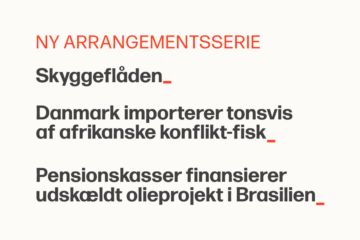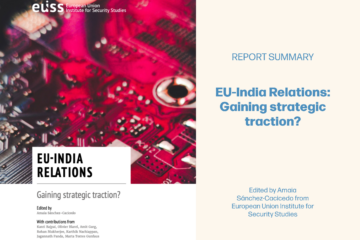Learning from the Ilulissat Initiative
In February 2018 Centre for Military Studies (CMS) at University of Copenhagen published the report “Learning from the Ilulissat Initiative” by Jon Rahbek-Clemmensen and Gry Thomasen.
In May 2018, it will be 10 years since representatives from the five arctic coastal states (Canada, United States, Russia, Norway and Denmark – A5) met and agreed on the Ilulissat Declaration outlining how to handle future issues in the Arctic Ocean.
The report concludes, that – for the Kingdom of Denmark – the current Arctic order resembles a ‘Goldilocks zone’ between too little and too much integration; regional institutions are strong enough to offer solutions to practical challenges, to facilitate cooperation between the states and to strengthen the position of the A5, however, the regional institutions are not so strong that they can make independent decisions without state consent.
Consequently, the report recommends that the Kingdom of Denmark consider the following initiatives:
- Work to preserve existing regional institutions in Arctic through institutional reforms that balances between protecting existing institutions and enhancing their legitimacy.
- Work to preserve the A5 as an important regional forum for the Arctic coastal states.
- Focus on diminishing potential institutional overlap between institutions in the Arctic Ocean.
- Use the 10-year anniversary of the Ilulissat meeting to tell the story of the A5, and highlight its practical accomplishments (e.g., the delimitation of the continental shelf and high seas fisheries negotiations in the Central Arctic Ocean).
- Strive to raise awareness of the Arctic and the A5 among other nations and entities especially the United States, EU and Russia.
- Update its Arctic strategy to explicitly state that the Kingdom of Denmark aims to maintain the A5 as a regional institution and to highlight the importance of A5 as a forum that complements other Arctic institutions. The Arctic Strategy should make Arctic agenda-setting a key Danish priority.
- Involve Faroe Islands and Greenland in the design of agenda-setting messages.
The Kingdom of Denmark has an overall interest in maintaining the current mosaic of regional institutions in the Arctic, where different institutions provide different solutions to specific challenges.
Finally, due to the continued debate and disagreement among different actors about the fundamental institutional structure in the region, the report deems continued active diplomacy important to maintain cooperation in the years to come.
Read the entire report here.


